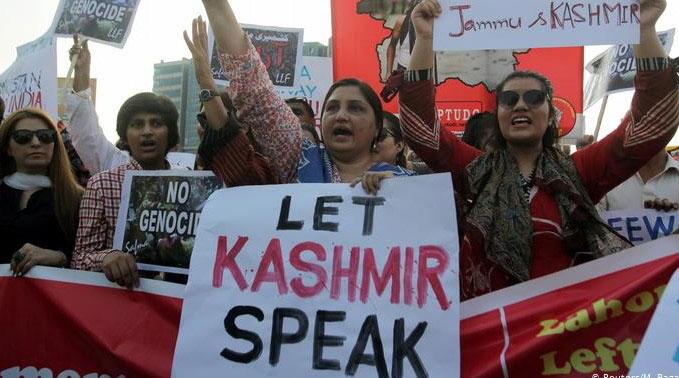Kashmir's Futuristic future, Decisive UN Security Council too

By Tuhin Sanzid
With a lot of drama the announcement was made, though the preparations were a secret. Although South Asians from different zones are protesting, generally about the loss of human rights of the Kashmiris, the future is still circling around the unknown.
And, after Security Council meeting on Kashmir ended without consensus peoples thinking that Kashmir Once Again playing out as Diplomatic Theatre at the United Nations.
The closed-door meeting of the UN Security Council on Jammu and Kashmir marked the first time in over 50 years since the issue was discussed at the world’s foremost diplomatic forum. This issue which has long remained at the center of India Pakistan tensions recently received fresh impetus following India’s unilateral decision to withdraw the special status awarded to the region. This was followed by a widespread clampdown in the form of an indefinite curfew as well as a media and communications blackout that is currently in its second week.
Consequently, the above mentioned UNSC meeting on Kashmir forms a key component of Pakistan’s diplomatic offensive following India’s actions. As such, it represents a highly interesting case of diplomatic theatre where the anticipation of possibly resolving or bringing about at least some semblance of positivity to a long-festering conflict has generated considerable interest the world over. This includes interest from both the international media as well as several observers and diplomats as a possible precedent for a consensus driven approach to conflict resolution in general.

Protest in Kashmir: Collected/ file photo
However, the lack of any meaningful outcome or even a joint statement directly arising out of this meeting has led to an almost perverse battle of sorts over optics and narrative between key stakeholders, which aims to leverage the UN’s significance as a platform for international consensus. Especially with a view towards placating an international audience’s expectations of what is just or right, the absence of a joint statement following this meeting has led to a vacuum that has resulted in even greater discord regarding this issue. Thus, instead of a collective decision or stance taken on the issue by the UNSCC, what was instead witnessed was China and Pakistan presenting their cases for international mediation at one end, and India insisting on the issue remaining an internal matter at the other. This for instance was clear in the press statements given by each of these countries’ representatives following the end of the UNSC meeting.
Pakistan is the most affected country in every sense, as India goes one very large step forward in denying or ignoring that Kashmir is “disputed.” By invalidating a clause of the constitution and making it part of the mainland, it made fundamental adjustments to the way the state will be governed.
However, two points are significant. First, such acts have enormous public support from which BJP draws its strategy and the Lok Sabha’s consensus on the issue gives legitimacy to such acts. Hence, the step was a calculated one, knowing it was meeting near universal approval. In the process, the sources--UN resolutions and various international agreements and understandings--were scrapped. But this is an age of “securitarianism” so India hasn’t met with any international furor on its actions either.
Compared to this act, many other more violent ones--the Rohingya eviction being one--occur which the world has turned a blind eye to so India has read the scene well before acting.
Relevantly, recently the Indian government revoked Kashmir’s special status, in a move that risks fuelling already heightened tensions with neighbouring Pakistan.
The BJP-led Indian government announced the removal of Article 370 of the country’s constitution which grants special status to the state of Jammu and Kashmir.
The next day, India’s Lok Sabha passed a bill to split Jammu and Kashmir into two Union Territories, with 367 votes in favour and 67 votes against.
Tens of thousands of Indian troops have enforced a strict curfew, which includes no internet or phone services, and are allowing only limited movement on streets usually bustling with tourists flocking to the picturesque valley.
On last Wednesday, India's aviation security agency advised airports across the country to step up security as "civil security has emerged as a soft target for terrorist attacks" on the heels of the Kashmir move.
The developments in Kashmir have irked India's nuclear-armed neighbour Pakistan which said Wednesday that it was downgrading diplomatic ties with Delhi. India has yet to respond to Islamabad's actions.
Islamabad has also vowed to take the matter to the United Nations Security Council. Pakistan has fought two wars with India over the scenic Himalayan region.






